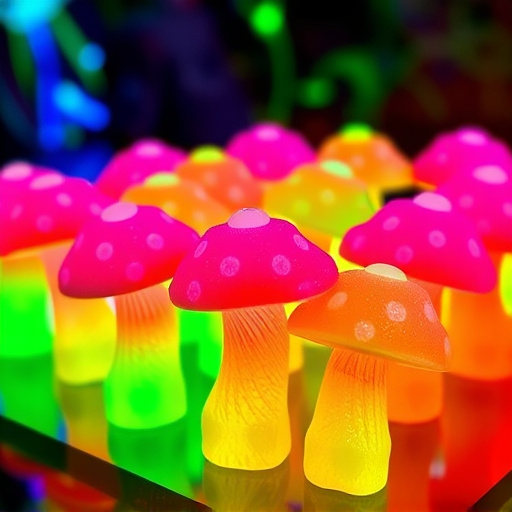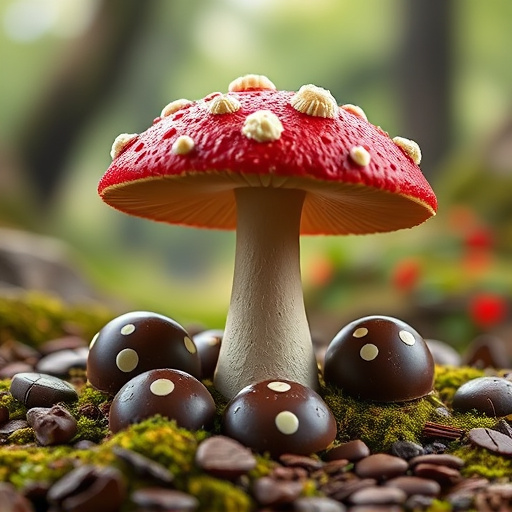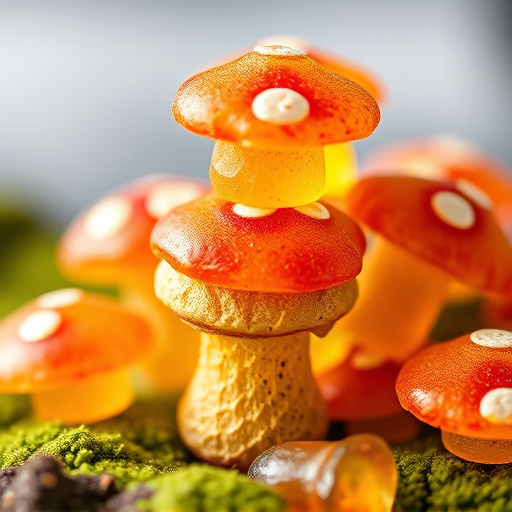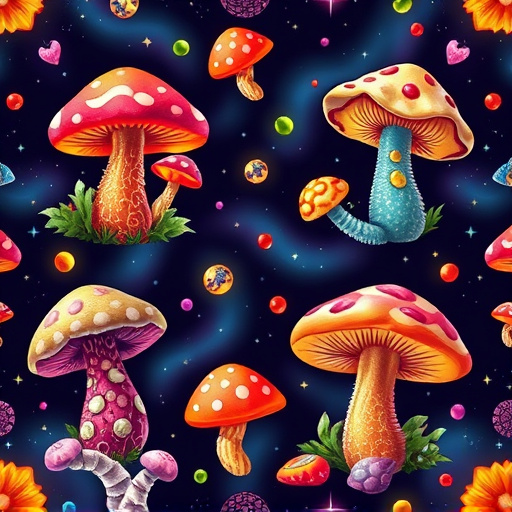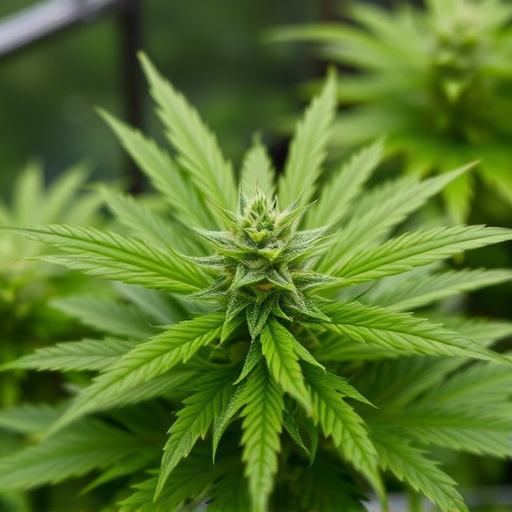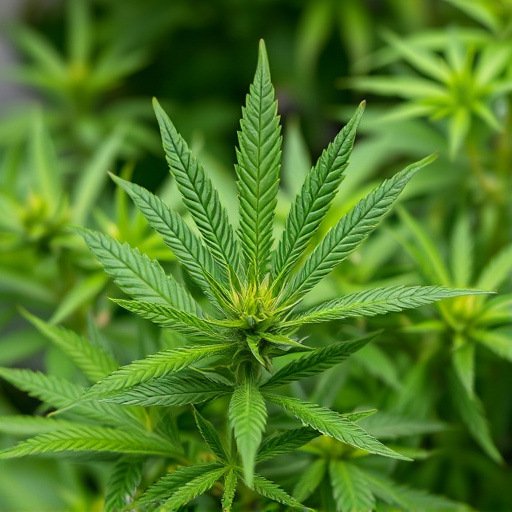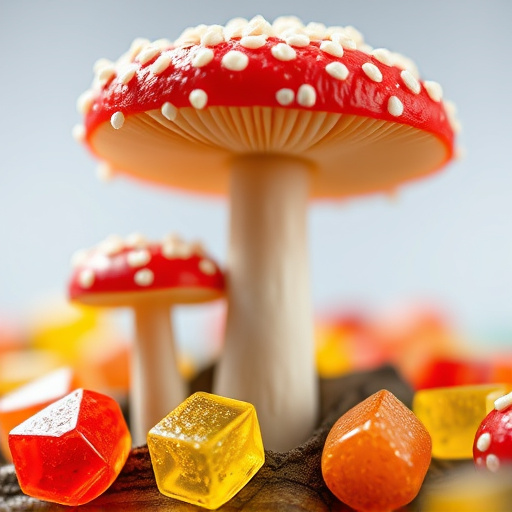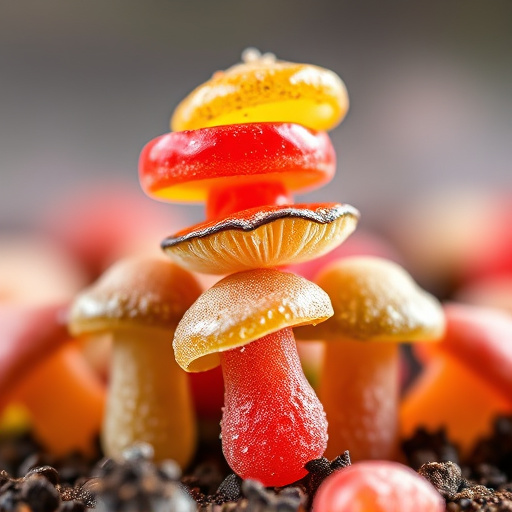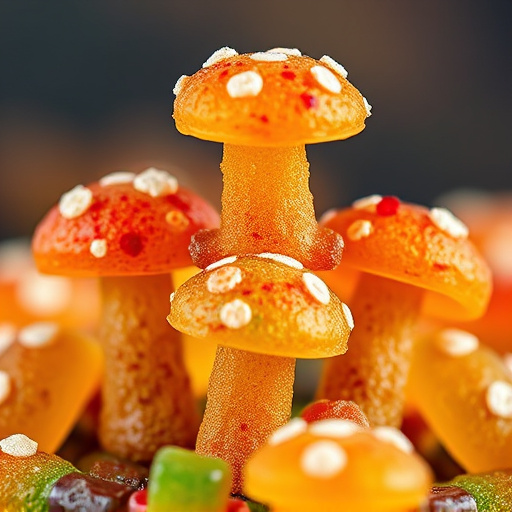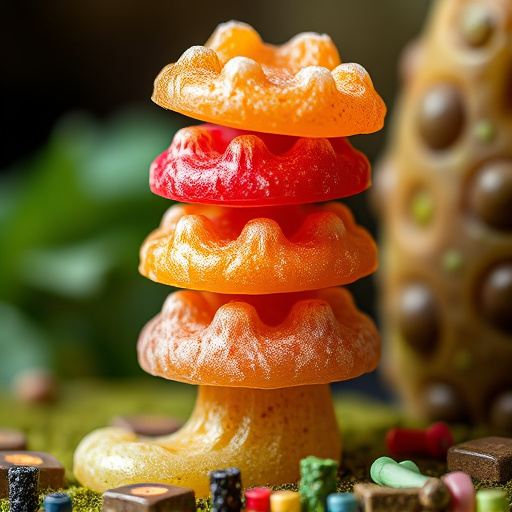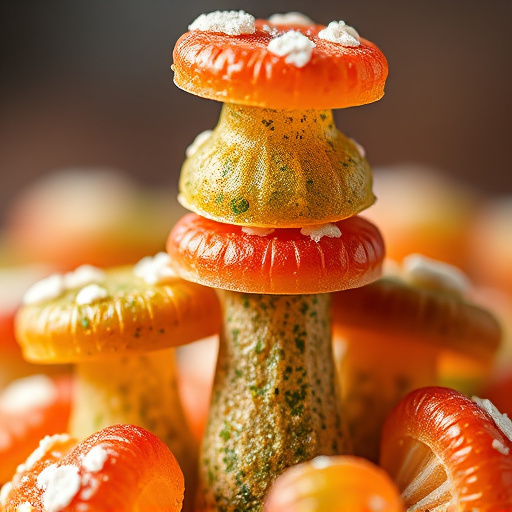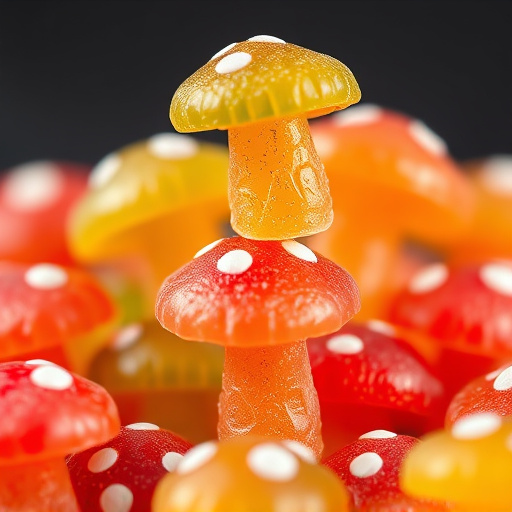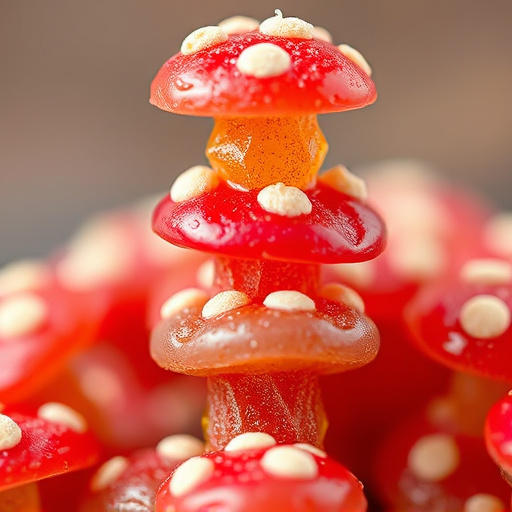The global legal status of magic mushroom gummies is rapidly evolving due to shifting societal attitudes and growing recognition of their therapeutic potential. While some countries have decriminalized or legalized psilocybin-containing products, including gummies, with safety regulations in place, others maintain strict prohibitions. Staying informed about local laws is crucial for consumers and businesses to ensure compliance, protect individuals, and foster public trust in this promising medical tool, given the significant variation in regulatory frameworks worldwide. Key considerations include product composition, intended use, and local drug policies.
“Unraveling the intricate web of the legal status of magic mushroom gummies is a crucial step in understanding their rising popularity. As regulations evolve globally, consumers are left with questions about safety and quality assurance. This article delves into the changing landscape, exploring how varying jurisdictions determine the legality of these innovative products. We’ll guide you through navigating the market by highlighting the significance of customer guarantees and the essential factors to consider when choosing a brand. Additionally, we aim to demystify their effects and separate fact from fiction.”
- The Evolving Legal Landscape of Magic Mushroom Gummies
- – Exploring the changing laws and regulations surrounding magic mushroom gummies across different jurisdictions
- – Discussing the factors that influence legal status, such as composition, intent, and local drug policies
The Evolving Legal Landscape of Magic Mushroom Gummies
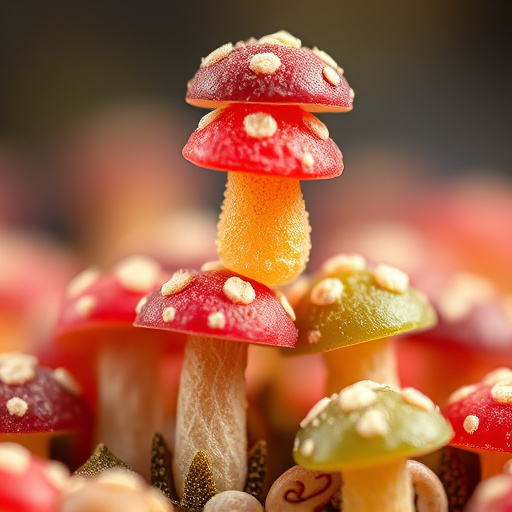
The legal status of magic mushroom gummies has been undergoing a significant evolution globally, reflecting changing societal attitudes and scientific insights into psychedelic substances. In many countries, efforts to decriminalize or even legalize psilocybin-containing products, including gummies, have gained momentum. This shift is driven by growing recognition of the therapeutic potential of mushrooms for conditions like anxiety, depression, and post-traumatic stress disorder (PTSD). As a result, several jurisdictions have implemented or proposed legislation that acknowledges the medical value of psychedelic compounds.
However, navigating the legal landscape remains complex. Regulations vary widely from one region to another, with some places maintaining strict prohibitions while others embrace a more nuanced approach. Staying informed about local laws is crucial for both consumers and businesses involved in the production and distribution of magic mushroom gummies. Ensuring compliance with the current regulatory framework not only protects individuals but also fosters public trust in what has the potential to be a transformative therapeutic tool.
– Exploring the changing laws and regulations surrounding magic mushroom gummies across different jurisdictions
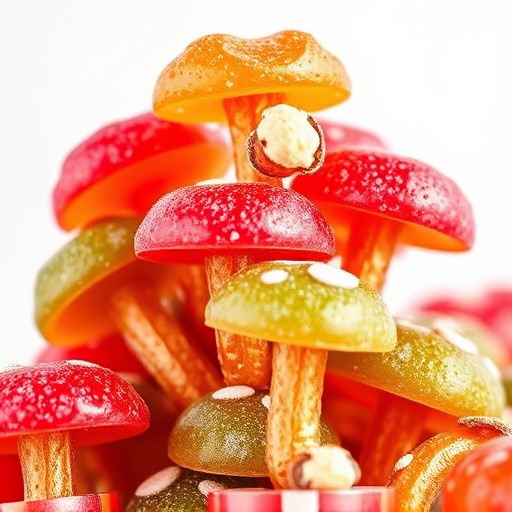
The legal status of magic mushroom gummies is a complex and evolving topic, with varying regulations across different jurisdictions worldwide. In recent years, there has been a growing trend towards decriminalization and even legalization of psilocybin mushrooms and related products, including gummies, for medical and therapeutic purposes. This shift in policy reflects a rising interest in exploring the potential benefits of psychedelic compounds under controlled and safe conditions.
Many countries and states have recognized the promise of psilocybin as a treatment for mental health disorders, such as depression, anxiety, and PTSD. As a result, some have legalized the production, sale, and consumption of magic mushroom gummies with strict regulations in place to ensure consumer safety. However, it’s important to note that the legal landscape still varies widely, with some regions maintaining strict prohibitions while others offer more lenient approaches. Understanding the local laws is crucial for both consumers and businesses navigating this emerging market.
– Discussing the factors that influence legal status, such as composition, intent, and local drug policies

The legal status of magic mushroom gummies is a complex issue that hinges on several key factors, including composition, intended use, and local drug policies. The primary concern revolves around the active compounds present in the gummies—psilocybin and psilocin, which are responsible for the psychoactive effects associated with “magic mushrooms.” If these compounds exceed legal limits or are intentionally added to create a mind-altering product, it can lead to classification as an illegal substance.
Additionally, the intent behind manufacturing and distributing magic mushroom gummies plays a significant role in determining their legality. Products marketed for recreational use or without clear therapeutic claims may face stricter scrutiny. Local drug policies also vary widely across regions, with some areas embracing medical psilocybin research while maintaining stringent restrictions on its sale and possession. Navigating these complexities is crucial for both consumers seeking therapeutic options and businesses looking to offer innovative products within the legal framework.
The legal status of magic mushroom gummies remains a complex and evolving topic, with varying regulations across different regions. As public perception shifts and scientific research progresses, it’s crucial for consumers to stay informed about local laws and exercise caution. Reputable brands offering customer guarantees can provide some reassurance, but individuals should always prioritize their safety and well-being above all else when considering any substance with psychoactive properties. Understanding the factors that influence the legal status, such as composition, intent, and local drug policies, is essential for navigating this ever-changing landscape.
